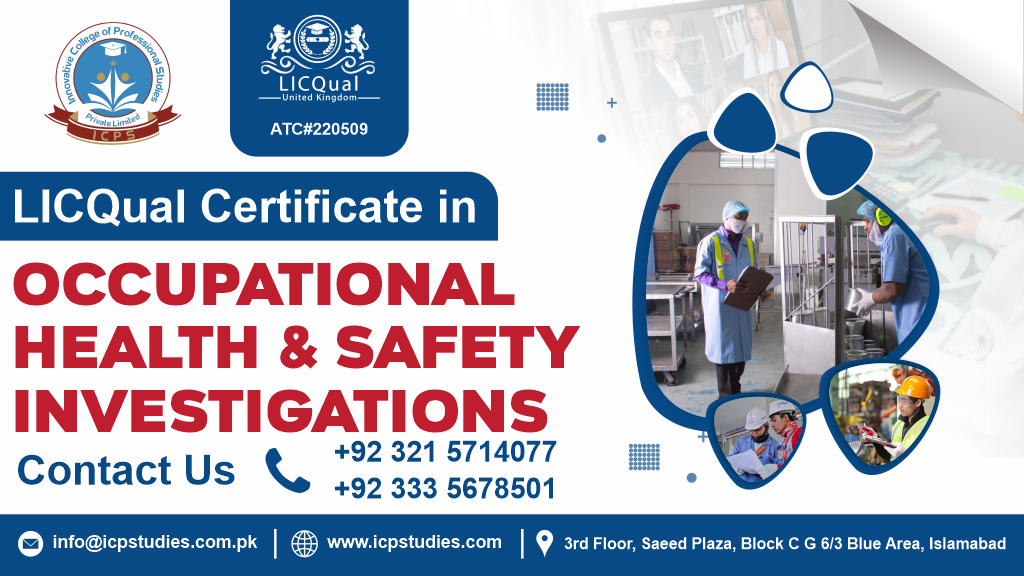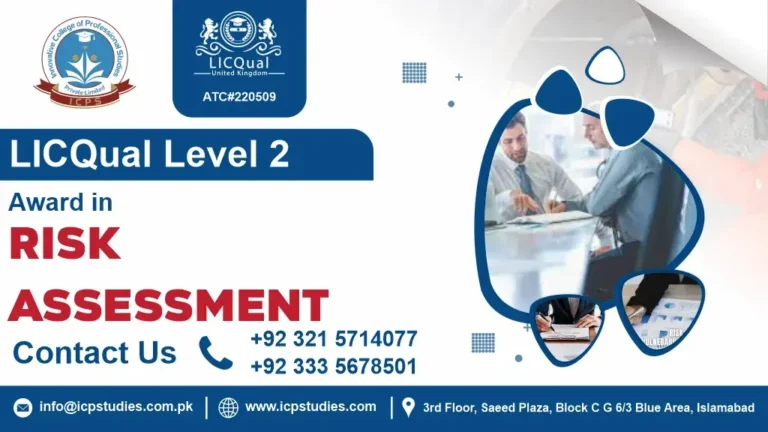In today’s fast-paced and dynamic work environments, ensuring the health and safety of employees is paramount. Employers are increasingly recognizing the importance of proactive measures to prevent workplace accidents and illnesses. This has led to a growing demand for professionals with expertise in occupational health and safety investigations. If you’re passionate about promoting workplace safety and are considering a career in this field, a Certificate in Occupational Health and Safety Investigations could be the perfect starting point for you.
Occupational health and safety investigators play a crucial role in identifying hazards, assessing risks, and implementing control measures to prevent workplace accidents and injuries. They investigate incidents, such as accidents, injuries, and near misses, to determine their root causes and recommend corrective actions. By conducting thorough investigations and implementing preventive measures, they help create safer work environments and protect the well-being of employees.
Certificate in Occupational Health and Safety Investigations offers numerous benefits for individuals interested in pursuing a career in this dynamic and rewarding field. From specialized knowledge and practical skills to career advancement opportunities and professional recognition, this credential can equip you with the tools you need to succeed as an occupational health and safety investigator. If you’re passionate about promoting workplace safety and protecting the well-being of others, investing in your education and obtaining a certificate in this area could be the first step towards a fulfilling and impactful career.
All About Certificate in Occupational Health and Safety Investigations
Course Overview
The “Certificate in Occupational Health and Safety Investigations” is a specialized credential designed to equip individuals with the knowledge, skills, and expertise necessary to conduct comprehensive investigations into workplace incidents and hazards. This certificate program focuses on training professionals to identify, assess, and mitigate risks in the workplace, with a specific emphasis on occupational health and safety.
The “Certificate in Occupational Health and Safety Investigations” is suitable for a wide range of professionals, including occupational health and safety officers, workplace safety managers, human resources professionals, industrial hygienists, safety consultants, and regulatory compliance officers. By completing this certificate program, individuals gain a recognized credential that demonstrates their expertise in occupational health and safety investigations and enhances their qualifications for career advancement opportunities in the field.
Study Units
To enroll in the Certificate in Occupational Health and Safety Investigations, candidates should meet the following entry requirements:
- Relevant Work Experience: A minimum of one year of experience in health and safety or a related field is typically required.
- Educational Background: A high school diploma or equivalent is preferred; a background in health and safety or related disciplines is beneficial.
- Basic Understanding of Health and Safety Regulations: Familiarity with occupational health and safety principles and regulations is essential.
- Age Requirement: Participants must be at least 18 years old.
- Language Proficiency: Proficiency in the language of instruction is necessary for effective comprehension of course materials.
- Commitment to Learning: A willingness to engage with the course content and apply knowledge of health and safety investigations.
These requirements ensure that candidates are adequately prepared to participate effectively in the course and gain essential skills in occupational health and safety investigations.
The Certificate in Occupational Health and Safety Investigations course is designed for:
- Health and Safety Professionals: Individuals working in health and safety roles who want to enhance their investigative skills.
- Safety Officers: Staff responsible for ensuring workplace safety and compliance with regulations.
- Managers and Supervisors: Those overseeing teams and needing to understand health and safety investigation processes.
- Human Resources Personnel: HR professionals involved in workplace safety and employee wellbeing.
- Risk Assessors: Individuals assessing and managing risks who wish to deepen their knowledge of incident investigation.
- Emergency Responders: Professionals involved in responding to workplace incidents who need a comprehensive understanding of investigation protocols.
This course is ideal for anyone seeking to develop their skills in investigating occupational health and safety incidents and improve workplace safety practices.
Learning Outcomes
- Occupational Health and Safety Professionals: Those already working in the field of occupational health and safety who want to enhance their skills in accident and incident investigation.
- Safety Managers and Officers: Professionals responsible for implementing safety programs and procedures in workplaces who wish to gain a deeper understanding of investigation techniques.
- Human Resources Personnel: Individuals involved in managing workplace incidents, workers’ compensation claims, and employee health and safety who want to improve their ability to investigate and address workplace hazards.
- Law Enforcement and Emergency Response Personnel: Police officers, firefighters, and emergency medical services personnel who may be involved in responding to workplace accidents and incidents.
- Healthcare Professionals: Occupational health nurses, industrial hygienists, and other healthcare professionals who work in occupational health settings and want to expand their knowledge of workplace investigation.
- Environmental Health Specialists: Those involved in assessing and mitigating environmental hazards in workplaces who wish to broaden their skills in occupational health and safety investigation.
- Industrial Engineers and Technicians: Professionals involved in designing and maintaining safe work environments who want to understand the investigative process to improve workplace safety measures.
- Students Pursuing Careers in Occupational Health and Safety: Individuals studying occupational health and safety, industrial hygiene, environmental health, or related fields who want to gain practical skills in accident and incident investigation.
- Consultants and Risk Management Professionals: Those providing consulting services or advising organizations on risk management and safety compliance who want to offer expertise in occupational health and safety investigation.
- Anyone Interested in Workplace Safety: Individuals with a general interest in promoting workplace safety and preventing accidents who want to learn more about identifying hazards, investigating incidents, and implementing preventive measures.
FAQs about Certificate in Occupational Health and Safety Investigations







